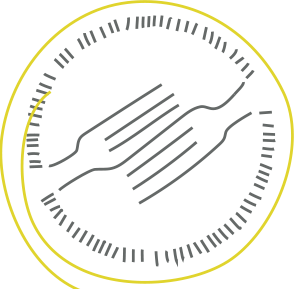Supplements are No Slam Dunk
Do you take supplements? If so, what are they and why are you taking them?
As is typical with my work, I meet my clients in the comfort of their own home for an initial evaluation. At the end of each session, I take my inevitable “poke in their pantry” and oftentimes I find a specific shelf (or sometimes a whole cabinet) devoted to supplements. And when I ask, “Who prescribed all of these supplements?” more often than not, the answer is, “No one. I read about this one; and my friend told me to take that one; and I was at my local GNC and this was on sale…”
Unfortunately, many people are seduced into self-medicating with supplements with hopes that a pill or a powder will make their health and diet issues disappear. Don’t get me wrong, it is not necessarily a bad thing to use supplements; what concerns me is the epidemic misuse and over-use that can compromise health (let alone the amount of money spent on many products that show little results).
Food First
More often than not, it is a not-so-simple food lifestyle (and general lifestyle) change that can deliver the best results.
So before stocking up on fish oil supplements consider simply eating the fish itself. Fatty fish like salmon (not the genetically modified kind), sardines, anchovies, herring and even tuna (though in moderation due to high mercury) can be very healthy due to high levels of omega-3 fatty acids, which can boost heart health and lower triglycerides.
And instead of a pill packed with Vitamin C try eating broccoli, Brussels sprouts, oranges or strawberries. Try a little sunshine versus downing the D. Green powder is good, but how about eating or juicing greens instead? The whole food offers added nutrition like fiber that touts many health benefits.
In other words, do your best to get your nutrition from food rather than a pill. In most cases, you can get exactly what you need from food alone!
If Supplementing with Supplements
P-L-E-A-S-E work with a qualified health professional whether a medical doctor (Osteopaths and Naturopaths included) or nutritionist(though keep in mind that this profession needs some serious qualifying). Having someone by your side that truly knows your health history and can order blood tests (or simply read and understand labs) is essential in understanding where and how supplementation can have a positive impact on your health.
Also, quality is critical! Using fish oil as an example, the Council for Responsible Nutrition (CRN) and the World Health Organization (WHO) have standards in place for testing the purity and safety of fish oil products. This third party testing (meaning that the manufacturer itself is not testing their own product) ensures that each product is tested for things like dioxins, PCBs, mercury, arsenic and acid value. And while many supplements may pass the test, they are not all created equal—if you look at many supplement facts labels you will see fillers and additives like hydrogenated oils (trans fats) and even the highly controversial and potentially carcinogenic titanium dioxide (often used as a whitener).
Also consider this (sorry to confuse you): It is important to understand that doctors sometimes “double” as supplement pushers (and they often sell the supplements they want you to take). So, proceed with caution on all fronts.
With all of this in mind, here are several things I urge you to consider when supplementing:
- Understand exactly what you are taking and why
- Understand proper dosing (supplements don’t’ come with person-specific dosing)
- Know how long your doctor wants you on a specific supplement (supplements are not necessarily for indefinite use)
- Ask for follow-up blood tests to help determine if your blood markers have improved (what often determines if you need supplements)
- Look for supplements with little or no additives (like the trans fats or titanium dioxide)
- Ideally buy your supplements from a reputable pharmacy or nutrition supplement store like Life Science Pharmacy carrying superior-quality supplements (like those used by and often sold by the doctors’ themselves)
- When you buy supplements, always speak with a pharmacist who knows the products and can recommend ones based on your doctors orders
Never forget, knowledge is power! And ultimately you are in charge of your own health!
Thanks to my intern, David Berliner for his valuable input on this blog.
Let’s keep this conversation going. Please feel free to share your thoughts and opinions. I would love to hear from you!

